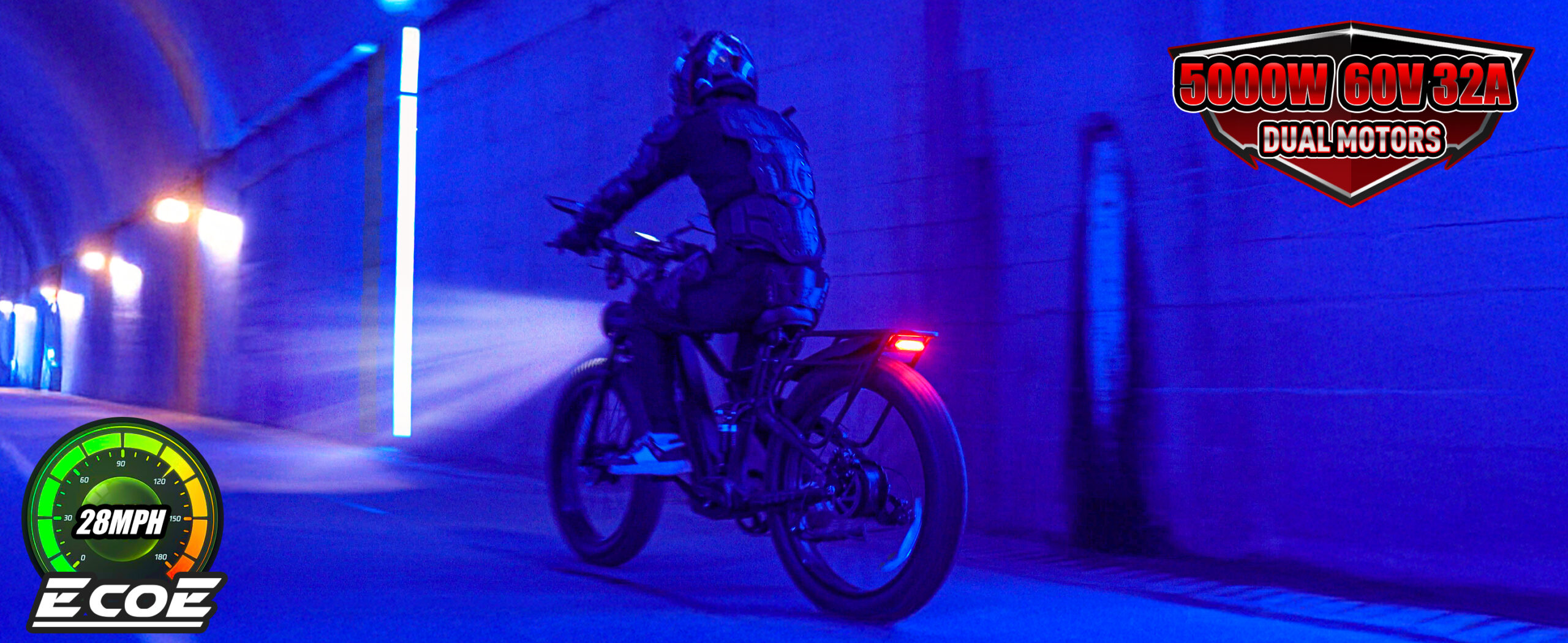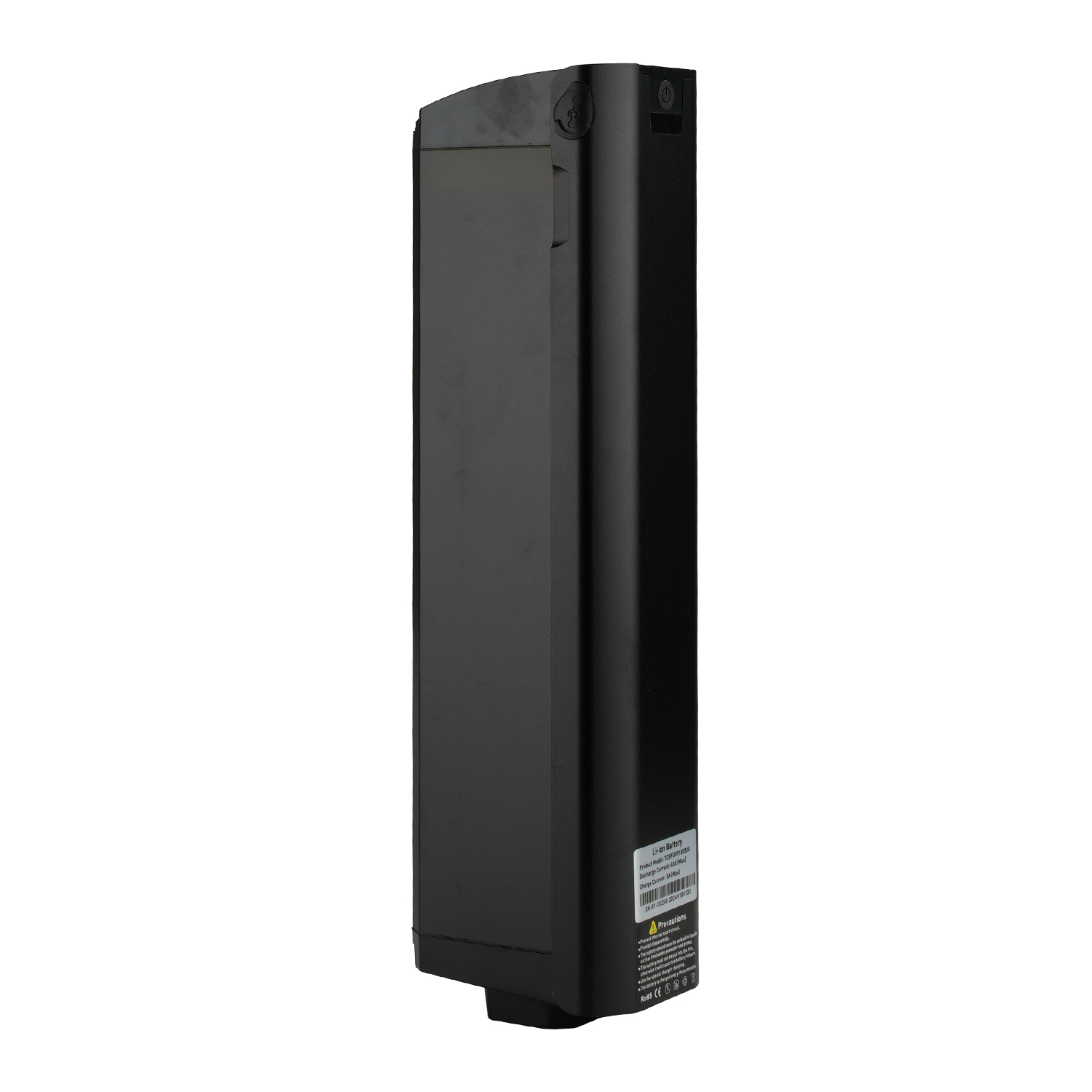
Apr 26, 2025
|
0 comments
Best Electric Dirt Bikes for Adults in 2025: Top Picks & Performance Reviews
As electric dirt bikes gain popularity among adult riders in 2025, we’ve hit the trails ourselves to experience what these machines really offer. In this article, we share our top picks, real-world feedback, and a few surprises we encountered along the way. We still remember the first time we swapped our gas-guzzling bikes for electric dirt bikes. It was a quiet Saturday morning, and instead of the usual roar, we were greeted with a low hum and crisp mountain air. Electric dirt bikes have exploded in popularity among adults looking for adrenaline with a side of sustainability. In 2025, brands are pushing boundaries—delivering machines with serious torque, smart tech, and eco-awareness. For us, the appeal started with curiosity but turned into a full-on lifestyle shift. We didn’t miss the fumes, and surprisingly, we didn’t miss the sound either. The silence made the forest rides feel even more immersive. But what truly matters is: which bikes are worth your money? Top 5 Picks in 2025: Performance, Price & Personality Here are our personal favorites this year, tested on sand, trail, gravel, and mountain. 1. Surron Light Bee X (2025 Model) 2. Talaria Sting MX3 3. Ecoe 5000W Electric Dirt Bike 4. Zero FX ZF7.2 5. Cake Kalk OR Race Electric dirt bikes offer instant torque—and we mean instant. There’s no lag like in gas-powered engines. One of our riding buddies called it “telepathic acceleration.” You think, it moves. But we’ll be honest—this takes getting used to. More than once, we hit the throttle too hard and ended up hugging a tree. Lesson learned. The Ecoe bike stood out for its stability at higher speeds, especially on loose gravel. In contrast, the Talaria felt wilder—more fun for adrenaline junkies but less forgiving. And the Zero FX? It’s a whole different league, better […]
Read more

Apr 26, 2025
|
0 comments
Top 10 Affordable Electric Dirt Bikes for Adults: Budget-Friendly Off-Road Rides
Looking for an adrenaline rush that won’t break the bank? We’ve scoured the 2025 market to bring you ten budget-friendly electric dirt bikes for adults that deliver top-tier performance at wallet-friendly prices. Whether you’re new to off-roading or a seasoned weekend warrior, there’s something here for every type of rider. We didn’t wake up one morning and suddenly decide we were dirt bike experts. It started with a group text, someone saying, “I just found an electric dirt bike under $2,000!” A few laughs later, we were watching videos of people tearing through the woods, no gas fumes in sight. That’s when we realized—affordable electric dirt bikes aren’t just real, they’re redefining what it means to ride off-road. We made it a mission to find the best options out there—focusing on performance, battery life, suspension quality, and yes, price tags that wouldn’t require us to refinance our cars. Here’s our 2025 shortlist. Top 10 Budget Electric Dirt Bikes in 2025 1. Razor MX650 Rocket Electric Motocross Bike 2. Sur-Ron Light Bee X (Used Models) 3. Talaria Sting MX3 4. Hiboy P6 Fat Tire Electric Dirt Bike 5. Ecoe 5000W Dual Motor Electric Bike “It handles sand trails like a beast,” one Arizona rider posted. “I wasn’t expecting that from a sub-$1,500 e-bike.” 6. Razor SX500 McGrath Electric Motocross Bike 7. eRide Pro-SS 8. Kuberg Freerider 9. Mototec 48V Pro Electric Dirt Bike 10. Apollo Ghost (Used Electric Dirt Bike Models) We didn’t just trust specs and marketing blurbs. We talked to real riders—off-roaders who’ve been testing these bikes across Utah dunes, Florida backroads, and California forest trails. “Honestly, the Talaria handles better than my old Yamaha on tight corners,” said one rider we met at a meetup near San Diego. Another user from Colorado wrote in a forum: “I’ve put […]
Read more

Apr 25, 2025
|
0 comments
The development history of electric bicycle motor technology from the late 19th century – early 20th century
The EcoE 5000W electric bike Powerful Motor: EcoE is equipped with a 60V 5000W high-speed brushless motor. Due to different loads and road conditions, the electric bike drive system provides adjustable assistance, allowing you to stay healthy, relax, and exercise.Accessories: This electric bike accessory set includes a rearview mirror, water bottle holder and bottle, a sturdy phone mount, and a waterproof phone pouch. The reinforced cargo rack allows you to easily carry extra items needed for your ride. Additionally, if you need more accessories, you can purchase a detachable storage rack, passenger safety seat, trailer, and more.60V 32AH Battery: The bike is equipped with a high-capacity, removable 32AH battery, providing longer range per charge and over 1000 charge cycles. With pedal assist, the fat tire e-bike can travel 35-80 miles, depending on riding mode, load, and terrain. You can also purchase a spare battery for extended trips.Comfort and Versatility: This fat tire electric bike comes with dual front suspension and rear shocks to reduce impact and strain during rides. Its 26-inch wheels, 4-inch tires, and SHIM 7-speed system offer excellent grip across diverse terrains. Front and rear disc brakes ensure safe, responsive stopping, whether on mountain trails or city streets. – In 1895, Ogden Bolton Jr. invented the first practical electric bicycle. He installed a DC motor on the rear wheel and drove the wheel through chain transmission. This motor adopted the brushed DC motor technology, which was quite common at that time. It had the characteristics of simple structure and easy control. Although its power was relatively small and could only provide limited power, it laid the foundation for the development of electric bicycles. During this period, the electric bicycle motor technology mainly focused on the application and improvement of DC motors. Scientists and inventors tried different motor designs and winding methods to […]
Read more

Apr 25, 2025
|
0 comments
The development history of electric bicycle motor technology
The EcoE 5000W electric bike Powerful Motor: EcoE is equipped with a 60V 5000W high-speed brushless motor. Due to different loads and road conditions, the electric bike drive system provides adjustable assistance, allowing you to stay healthy, relax, and exercise.Accessories: This electric bike accessory set includes a rearview mirror, water bottle holder and bottle, a sturdy phone mount, and a waterproof phone pouch. The reinforced cargo rack allows you to easily carry extra items needed for your ride. Additionally, if you need more accessories, you can purchase a detachable storage rack, passenger safety seat, trailer, and more.60V 32AH Battery: The bike is equipped with a high-capacity, removable 32AH battery, providing longer range per charge and over 1000 charge cycles. With pedal assist, the fat tire e-bike can travel 35-80 miles, depending on riding mode, load, and terrain. You can also purchase a spare battery for extended trips.Comfort and Versatility: This fat tire electric bike comes with dual front suspension and rear shocks to reduce impact and strain during rides. Its 26-inch wheels, 4-inch tires, and SHIM 7-speed system offer excellent grip across diverse terrains. Front and rear disc brakes ensure safe, responsive stopping, whether on mountain trails or city streets. – 详细介绍一下电动自行车电机技术发展的历史,配上表格,并翻译为英语。 电动自行车电机技术的发展历史可以分为以下几个阶段: 以下是一个关于电动自行车电机技术发展历史的表格总结: 阶段 时间 主要电机类型 特点 早期探索阶段 19 世纪末 – 20 世纪初 直流轮毂电机 结构简单,性能有限,效率低,续航短,体积重量大 技术摸索阶段 20 世纪 80 年代 – 90 年代 柱式电机、轮毂电机等 开始尝试不同类型结构,存在电池寿命短等问题 有刷电机主导阶段 20 世纪 90 年代后期 – 2003 年左右 高速有刷电机 启动快,制动及时,调速平滑,控制电路简单,但效率低,电刷易磨损 无刷电机崛起阶段 2003 年以后 无刷电机(轮毂电机、中置电机等) 可靠性高,寿命长,噪音小,效率高,控制器技术提升,车辆性能增强 The development history of electric bicycle motor technology can be divided into the following stages: The following is a table summarizing the development history of electric bicycle motor technology: Stage Time Main Motor Types Characteristics Early Exploration Stage Late 19th – early 20th century DC hub – motor Simple structure, limited performance, low efficiency, short range, large volume and heavy weight Technical Exploration […]
Read more

Apr 24, 2025
|
0 comments
The development history of road – type electric bicycles from the 2020s to the present
The EcoE 5000W electric bike Powerful Motor: EcoE is equipped with a 60V 5000W high-speed brushless motor. Due to different loads and road conditions, the electric bike drive system provides adjustable assistance, allowing you to stay healthy, relax, and exercise.Accessories: This electric bike accessory set includes a rearview mirror, water bottle holder and bottle, a sturdy phone mount, and a waterproof phone pouch. The reinforced cargo rack allows you to easily carry extra items needed for your ride. Additionally, if you need more accessories, you can purchase a detachable storage rack, passenger safety seat, trailer, and more.60V 32AH Battery: The bike is equipped with a high-capacity, removable 32AH battery, providing longer range per charge and over 1000 charge cycles. With pedal assist, the fat tire e-bike can travel 35-80 miles, depending on riding mode, load, and terrain. You can also purchase a spare battery for extended trips.Comfort and Versatility: This fat tire electric bike comes with dual front suspension and rear shocks to reduce impact and strain during rides. Its 26-inch wheels, 4-inch tires, and SHIM 7-speed system offer excellent grip across diverse terrains. Front and rear disc brakes ensure safe, responsive stopping, whether on mountain trails or city streets. – 详细介绍一下公路类型电动自行车2020 年代至今发展的历史,配上表格,并翻译为英语。 2020 年代至今,公路类型电动自行车在技术、市场、政策等多方面因素的影响下取得了显著发展,以下是具体介绍: 以下是一个简单的表格总结: 方面 具体情况 技术发展 电池技术进步,续航增加、充电时间缩短;无刷直流电机成主流,智能调速;智能功能融入,如智能显示屏、手机 APP 连接等 市场变化 疫情影响下需求大增,国内外市场均有增长;竞争激烈,行业集中度提高,新老品牌及跨界企业纷纷入局;出口保持良好增势 政策影响 国内 “新国标” 推动行业规范化;国外部分国家出台补贴政策刺激需求 English Introduction Since the 2020s, road – type electric bicycles have witnessed remarkable development under the influence of various factors such as technology, market, and policies. The following is a detailed introduction: The following is a simple table for summary: Aspect Details Technological Development Progress in battery technology, increased cruising range and shortened charging time; brushless DC motors become the mainstream with intelligent speed regulation; integration of intelligent functions such as intelligent display screens and mobile APP connections Market Changes Significant increase in demand influenced by […]
Read more

Apr 24, 2025
|
0 comments
The development history of road – type electric bicycles from the 2000s to the 2010s
The EcoE 5000W electric bike Powerful Motor: EcoE is equipped with a 60V 5000W high-speed brushless motor. Due to different loads and road conditions, the electric bike drive system provides adjustable assistance, allowing you to stay healthy, relax, and exercise.Accessories: This electric bike accessory set includes a rearview mirror, water bottle holder and bottle, a sturdy phone mount, and a waterproof phone pouch. The reinforced cargo rack allows you to easily carry extra items needed for your ride. Additionally, if you need more accessories, you can purchase a detachable storage rack, passenger safety seat, trailer, and more.60V 32AH Battery: The bike is equipped with a high-capacity, removable 32AH battery, providing longer range per charge and over 1000 charge cycles. With pedal assist, the fat tire e-bike can travel 35-80 miles, depending on riding mode, load, and terrain. You can also purchase a spare battery for extended trips.Comfort and Versatility: This fat tire electric bike comes with dual front suspension and rear shocks to reduce impact and strain during rides. Its 26-inch wheels, 4-inch tires, and SHIM 7-speed system offer excellent grip across diverse terrains. Front and rear disc brakes ensure safe, responsive stopping, whether on mountain trails or city streets. – 2000s 2010s The following is a summary table: Time Policy environment Technological development Market situation 2000 – 2004 After the SARS epidemic in 2003, the development of personal transportation was encouraged, and electric bicycles were classified as non – motor vehicles. In 2004, the “Road Traffic Safety Law” identified electric bicycles as legal non – motor vehicles. Development from brushed and geared motors to brushless and high – efficiency motors. Improvement in the technologies of batteries, chargers, and controllers, solving the early performance problems. Became substitutes for upgraded bicycles and motorcycles, stimulating market demand. The sales volume reached 7.5 million in 2004. 2005 […]
Read more

Apr 23, 2025
|
0 comments
The development history of road – type electric bicycles from the 1970s to the 1990s
The EcoE 5000W electric bike Powerful Motor: EcoE is equipped with a 60V 5000W high-speed brushless motor. Due to different loads and road conditions, the electric bike drive system provides adjustable assistance, allowing you to stay healthy, relax, and exercise.Accessories: This electric bike accessory set includes a rearview mirror, water bottle holder and bottle, a sturdy phone mount, and a waterproof phone pouch. The reinforced cargo rack allows you to easily carry extra items needed for your ride. Additionally, if you need more accessories, you can purchase a detachable storage rack, passenger safety seat, trailer, and more.60V 32AH Battery: The bike is equipped with a high-capacity, removable 32AH battery, providing longer range per charge and over 1000 charge cycles. With pedal assist, the fat tire e-bike can travel 35-80 miles, depending on riding mode, load, and terrain. You can also purchase a spare battery for extended trips.Comfort and Versatility: This fat tire electric bike comes with dual front suspension and rear shocks to reduce impact and strain during rides. Its 26-inch wheels, 4-inch tires, and SHIM 7-speed system offer excellent grip across diverse terrains. Front and rear disc brakes ensure safe, responsive stopping, whether on mountain trails or city streets. – 1970s 1980s 1990s The following is a summary table: Time Development Main technical characteristics Representative events/brands 1970s Due to the oil crisis, electric bicycles received attention as energy – saving transportation. R & D focused on battery and motor technologies In the technical exploration stage, looking for suitable batteries and motors No specific representative events 1980s China began industrialization attempts, and Japan achieved mass – production commercialization China’s Yongjiu brand DX – 130 used lead – acid batteries and column – type motors; Japan’s Yamaha Pedelec used nickel – metal hydride batteries China’s Yongjiu brand DX – 130 electric bicycle; Japan’s Yamaha first […]
Read more

Apr 23, 2025
|
0 comments
The development history of road – type electric bicycles from the late 19th century to the middle of the 20th century
The EcoE 5000W electric bike Powerful Motor: EcoE is equipped with a 60V 5000W high-speed brushless motor. Due to different loads and road conditions, the electric bike drive system provides adjustable assistance, allowing you to stay healthy, relax, and exercise.Accessories: This electric bike accessory set includes a rearview mirror, water bottle holder and bottle, a sturdy phone mount, and a waterproof phone pouch. The reinforced cargo rack allows you to easily carry extra items needed for your ride. Additionally, if you need more accessories, you can purchase a detachable storage rack, passenger safety seat, trailer, and more.60V 32AH Battery: The bike is equipped with a high-capacity, removable 32AH battery, providing longer range per charge and over 1000 charge cycles. With pedal assist, the fat tire e-bike can travel 35-80 miles, depending on riding mode, load, and terrain. You can also purchase a spare battery for extended trips.Comfort and Versatility: This fat tire electric bike comes with dual front suspension and rear shocks to reduce impact and strain during rides. Its 26-inch wheels, 4-inch tires, and SHIM 7-speed system offer excellent grip across diverse terrains. Front and rear disc brakes ensure safe, responsive stopping, whether on mountain trails or city streets. – Late 19th century – Early 20th century Early 20th century – 1930s 1930s – Middle of the 20th century The following is a simple table for summary: Time period Development characteristics Technological progress Market situation Late 19th century – Early 20th century Concept emerged, mainly experimental designs Low performance of batteries and motors Niche market, low practicality and popularity Early 20th century – 1930s More practical designs emerged, focusing on comfort and efficiency Progress in motor and battery technologies, optimization of frame design Targeted at niche markets, expensive 1930s – Middle of the 20th century Continuous technological improvement, enhanced appearance and quality, optimized […]
Read more

Apr 22, 2025
|
0 comments
The development history of road – type electric bicycles
The EcoE 5000W electric bike Powerful Motor: EcoE is equipped with a 60V 5000W high-speed brushless motor. Due to different loads and road conditions, the electric bike drive system provides adjustable assistance, allowing you to stay healthy, relax, and exercise.Accessories: This electric bike accessory set includes a rearview mirror, water bottle holder and bottle, a sturdy phone mount, and a waterproof phone pouch. The reinforced cargo rack allows you to easily carry extra items needed for your ride. Additionally, if you need more accessories, you can purchase a detachable storage rack, passenger safety seat, trailer, and more.60V 32AH Battery: The bike is equipped with a high-capacity, removable 32AH battery, providing longer range per charge and over 1000 charge cycles. With pedal assist, the fat tire e-bike can travel 35-80 miles, depending on riding mode, load, and terrain. You can also purchase a spare battery for extended trips.Comfort and Versatility: This fat tire electric bike comes with dual front suspension and rear shocks to reduce impact and strain during rides. Its 26-inch wheels, 4-inch tires, and SHIM 7-speed system offer excellent grip across diverse terrains. Front and rear disc brakes ensure safe, responsive stopping, whether on mountain trails or city streets. – Early exploration (late 19th century – mid – 20th century) Technological breakthroughs and commercialization attempts (1970s – 1990s) Popularization and explosive growth period (2000s – 2010s) Maturity and innovation period (2020s – present) The following is a related table for sorting: Time period Development Main events Late 19th century – mid – 20th century Early exploration, the emergence of technical prototypes, but not widely used due to battery technology limitations In 1881, Gustave Trouvé created the first electric tricycle; in 1895, Ogden Bolton invented the direct – drive rear – hub electric bicycle 1970s – 1990s Technological breakthroughs, starting commercialization attempts The oil […]
Read more

Apr 22, 2025
|
0 comments
The development history of off – road electric bicycles from the 2020s to the present
The EcoE 5000W electric bike Powerful Motor: EcoE is equipped with a 60V 5000W high-speed brushless motor. Due to different loads and road conditions, the electric bike drive system provides adjustable assistance, allowing you to stay healthy, relax, and exercise.Accessories: This electric bike accessory set includes a rearview mirror, water bottle holder and bottle, a sturdy phone mount, and a waterproof phone pouch. The reinforced cargo rack allows you to easily carry extra items needed for your ride. Additionally, if you need more accessories, you can purchase a detachable storage rack, passenger safety seat, trailer, and more.60V 32AH Battery: The bike is equipped with a high-capacity, removable 32AH battery, providing longer range per charge and over 1000 charge cycles. With pedal assist, the fat tire e-bike can travel 35-80 miles, depending on riding mode, load, and terrain. You can also purchase a spare battery for extended trips.Comfort and Versatility: This fat tire electric bike comes with dual front suspension and rear shocks to reduce impact and strain during rides. Its 26-inch wheels, 4-inch tires, and SHIM 7-speed system offer excellent grip across diverse terrains. Front and rear disc brakes ensure safe, responsive stopping, whether on mountain trails or city streets. – The following is a related table for sorting: Time Development Representative events/related information 2020 Increased demand for electric bicycles due to the epidemic; release of off – road models; holding of off – road events SURRON Storm Bee and Light Bee S were launched; the Ariel Rider Grizzly electric bicycle was released; the Giant mountain electric bicycle off – road race was held in Hangzhou 2021 Establishment of electric off – road events; launch of special – purpose models; brand cooperation to launch new products SURRON established the E – POWER CROSS event; Cake launched the Kalk AP electric off – road bicycle […]
Read more
















